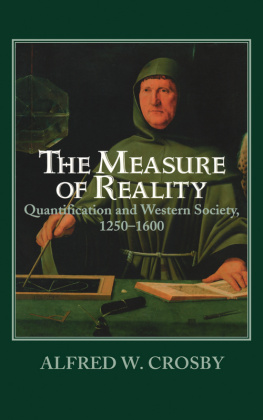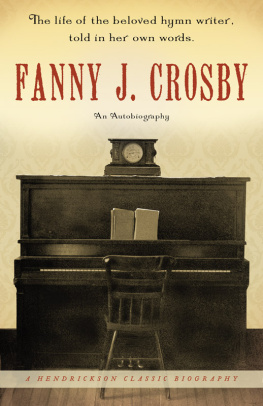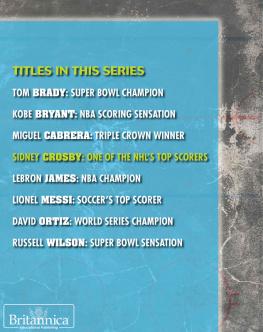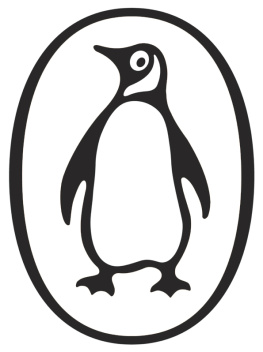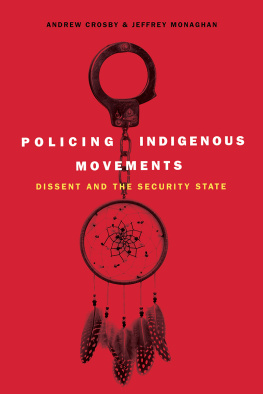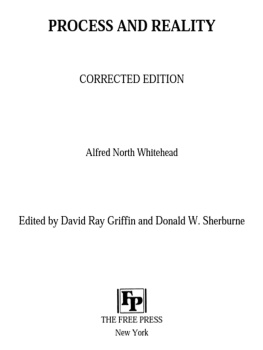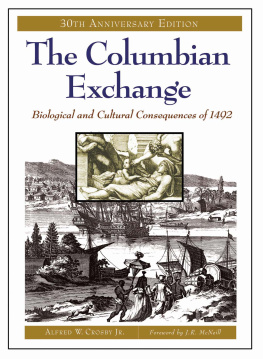Alfred W. Crosby - The Measure of Reality
Here you can read online Alfred W. Crosby - The Measure of Reality full text of the book (entire story) in english for free. Download pdf and epub, get meaning, cover and reviews about this ebook. year: 1997, publisher: Cambridge University Press, genre: Art. Description of the work, (preface) as well as reviews are available. Best literature library LitArk.com created for fans of good reading and offers a wide selection of genres:
Romance novel
Science fiction
Adventure
Detective
Science
History
Home and family
Prose
Art
Politics
Computer
Non-fiction
Religion
Business
Children
Humor
Choose a favorite category and find really read worthwhile books. Enjoy immersion in the world of imagination, feel the emotions of the characters or learn something new for yourself, make an fascinating discovery.
- Book:The Measure of Reality
- Author:
- Publisher:Cambridge University Press
- Genre:
- Year:1997
- Rating:5 / 5
- Favourites:Add to favourites
- Your mark:
- 100
- 1
- 2
- 3
- 4
- 5
The Measure of Reality: summary, description and annotation
We offer to read an annotation, description, summary or preface (depends on what the author of the book "The Measure of Reality" wrote himself). If you haven't found the necessary information about the book — write in the comments, we will try to find it.
The Measure of Reality — read online for free the complete book (whole text) full work
Below is the text of the book, divided by pages. System saving the place of the last page read, allows you to conveniently read the book "The Measure of Reality" online for free, without having to search again every time where you left off. Put a bookmark, and you can go to the page where you finished reading at any time.
Font size:
Interval:
Bookmark:
Western Europeans were among the first, if not the first, to invent mechanical clocks, geometrically precise maps, doubleentry bookkeeping, exact algebraic and musical notations, and perspective painting. By the sixteenth century more people were thinking quantitatively in Western Europe than in any other part of the world. They thus became world leaders in science, technology, armaments, navigation, business practice, and bureaucracy, and created many of the greatest masterpieces of Western music and painting.
The Measure of Reality discusses the epochal shift from qualitative to quantitative perception in Western Europe during the late Middle Ages and Renaissance. This shift made modern science, technology, business practice, and bureaucracy possible. It affected not only the obvious such as measurements of time and space and mathematical technique but, equally and simultaneously, music and painting, thus proving that the shift was even more profound than once thought.
The Measure of Reality
BOOKS BY ALFRED W. CROSBY
America, Russia, Hemp and Napoleon: American Trade with Russia and the Baltic, 17831812 (1965)
The Columbian Exchange: Biological and Cultural Consequences of 1492 (1972)
Epidemic and Peace, 1918 (1976)
Ecological Imperialism: The Biological Expansion of Europe, 9001900 (1986)
Germs, Seeds, and Animals: Studies in Ecological History (1994)
QUANTIFICATION AND WESTERN SOCIETY, 12501600
Alfred W. Crosby

CAMBRIDGE UNIVERSITY PRESS
Cambridge, New York, Melbourne, Madrid, Cape Town, Singapore,
So Paulo, Delhi, Dubai, Tokyo, Mexico City
Cambridge University Press
The Edinburgh Building, Cambridge CB2 8RU, UK
Published in the United States of America by Cambridge University Press, New York
www.cambridge.org
Information on this title: www.cambridge.org/9780521554275
Cambridge University Press 1997
This publication is in copyright. Subject to statutory exception and to the provisions of relevant collective licensing agreements, no reproduction of any part may take place without the written permission of Cambridge University Press.
First published 1997
Reprinted 1997 (twice)
First paperback edition 1998
8th printing 2009
A catalogue record for this publication is available from the British Library
Library of Congress Cataloguing in Publication Data
Crosby, Alfred W.
The measure of reality : quantification in Western society, 1250-1600 /
Alfred W. Crosby.
Cambridge [England); New York, NY, USA: Cambridge University Press 1997.
xii, 245 p. : ill. ; 24 cm.
D202.C76 1997
ISBN 978-0-521-55427-5 Hardback
ISBN 978-0-521-63990-3 Paperback
Cambridge University Press has no responsibility for the persistence or accuracy of URLs for external or third-party internet websites referred to in this publication, and does not guarantee that any content on such websites is, or will remain, accurate or appropriate. Information regarding prices, travel timetables, and other factual information given in this work is correct at the time of first printing but Cambridge University Press does not guarantee the accuracy of such information thereafter.
Take away number in all things and all things perish. Take calculation from the world and all is enveloped in dark ignorance, nor can he who does not know the way to reckon be distinguished from the rest of the animals.
St. Isidore of Seville (c. 600)
And still they come, new from those nations to which the study of that which can be weighed and measured is a consuming love.
W. H. Auden (1935)
This is the third book I have written in my lifelong search for explanations for the amazing success of European imperialism. Europeans were not the cruelest and not the kindest imperialists, not the earliest and not the latest. They were unique in the degree of their success. They may retain that distinction forever, because it is unlikely that one division of the worlds inhabitants will ever again enjoy such extreme advantages over all the rest.
Cyrus the Great, Alexander the Great, Genghis Khan, and Huayna Capac were great conquerors, but they were all confined to no more than one continent and at best a wedge of a second. They were homebodies compared with Queen Victoria, on whose empire (to resuscitate a very old clich) the sun literally never set. The sun also never set on the empires of France, Spain, Portugal, the Netherlands, and Germany in their heyday. The explanations for this triumph, popular in Europe circa 1900, were fueled by ethnocentrism and justified by Social Darwinism. They were, simply, that those members of the human species most subject to painful sunburns were the most recent, highest, and, in all likelihood, final twigs on the exfoliating tree of evolution. Pale people were the brightest, most energetic, most sensible, most aesthetically advanced, and most ethical humans. They conquered all because they deserved to.
That seems hilariously unlikely today, but what other explanations are there? I have written books about the biological advantages that the white imperialists enjoyed. Their diseases mowed down American Indians, Polynesians, and Australian Aborigines. Their animals and plants, cultivated and wild, helped them to Europeanize wide expanses of the world and make them comfortable homelands for Europeans. But as I played out my role as a biological determinist, I was nagged by the impression that Europeans were incomparably successful at sending ships across oceans to predetermined destinations and at arriving at those destinations with superior weaponry with, for instance, cannons superior to those of the Ottomans and the Chinese; that they were more efficient at operating joint-stock companies and empires of unprecedented extension and degree of activity than anyone else that they were in general far more effective than they should have been, at least as judged by their own and others precedents. Europeans were not as magnificent as they believed, but they were able to organize large collections of people and capital and to exploit physical reality for useful knowledge and for power more efficiently than any other people of the time. Why?
The textbook answer is, put simply, science and technology, and that was certainly true for generations and still is in large parts of the world. But if we gaze back through and beyond the nineteenth century to the beginnings of European imperialism, we see little of science and technology as such. Westerners advantage, I believe, lay at first not in their science and technology, but in their utilization of habits of thought that would in time enable them to advance swiftly in science and technology and, in the meantime, gave them decisively important administrative, commercial, navigational, industrial, and military skills. The initial European advantage lay in what French historians have called mentalit.
During the late Middle Ages and Renaissance a new model of reality emerged in Europe. A quantitative model was just beginning to displace the ancient qualitative model. Copernicus and Galileo, the artisans who taught themselves to make one good cannon after another, the cartographers who mapped the coasts of newly contacted lands, the bureaucrats and entrepreneurs who managed the new empires and East and West India companies, the bankers who marshaled and controlled the streams of new wealth these people were thinking of reality in quantitative terms with greater consistency than any other members of their species.
Next pageFont size:
Interval:
Bookmark:
Similar books «The Measure of Reality»
Look at similar books to The Measure of Reality. We have selected literature similar in name and meaning in the hope of providing readers with more options to find new, interesting, not yet read works.
Discussion, reviews of the book The Measure of Reality and just readers' own opinions. Leave your comments, write what you think about the work, its meaning or the main characters. Specify what exactly you liked and what you didn't like, and why you think so.

